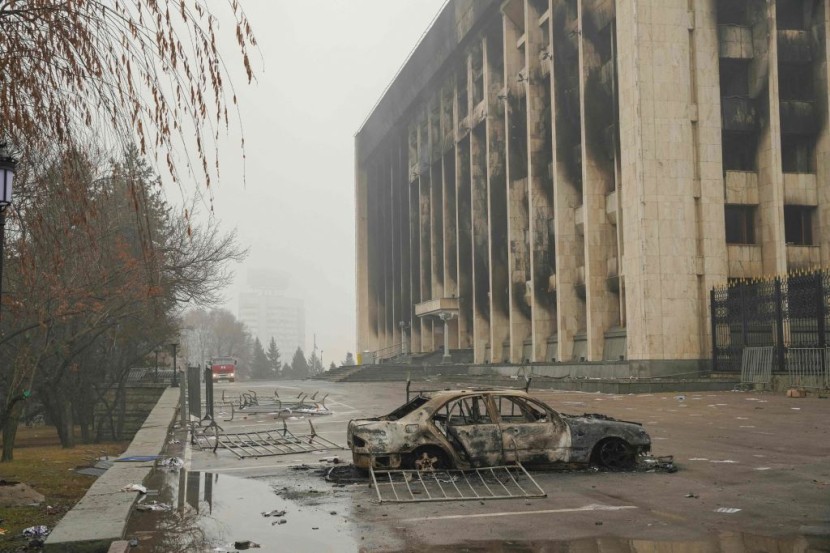
Senior United States government officials are in talks with Kazakhstan's top leaders, searching for peaceful means to resolve the ongoing violent uprising in the oil-rich Central Asian country after seeking assistance from a military coalition led by Russia.
Secretary of State Antony Binken had a dialogue with Kazakhstan Foreign Minister Mukhtar Tileuberdi on Thursday, stressing the full support of the US for the constitutional institutions, freedom of the press, and "peaceful and diplomatic" resolution to the crisis fueled by soaring fuel prices, according to Politico.
Earlier this week, Kazakhstan President Kassym-Jomart Tokayev threatened to accept his cabinet's resignation and declared a state of emergency in the country in response to the protesters' attacks that set government buildings on fire. Kazakhstan Interior Ministry reported that security forces killed 26 protesters, and not less than 3,000 people have been detained. Meanwhile, the number of deaths among law enforcement officers rose to 18, while over 700 have sustained injuries, according to reports.
The ongoing unrest in Kazakhstan is described as its worst street protests since gaining independence from the dissolved Soviet Union 30 years ago.
In Kazakhstan's largest city of Almaty, reports say protesters stormed and set fire to the presidential residence and the mayor's office. An angry mob also toppled the statue of Kazakhstan's fist President Nursultan Nazarbayev. The US Embassy in Kazakhstan is located in the city of Nur-Sultan, and it also has diplomatic facilities located in Almaty.
Shoot To Kill Order
President Tokayev on Friday authorized security forces to shoot to kill people who participated in the protests, which provoked a crackdown on anti-government demonstrations that resulted in violence.
The demonstrations began last weekend after the spike in prices of liquified petroleum gas used for powering cars. From the western area of Kazakhstan, the unrest quickly spread across the country to show frustration to Tokayev's authoritarian rule.
In Tokayev's address to the nation, he called those involved in the uprising as "bandits," "militants, and even "terrorists.".
"I have given the order to law enforcement and the army to shoot to kill without warning, Those who don't surrender will be eliminated," said Tokayev.
He also blasted other countries' calls on his government to engage in discussions with the protesters. Tokayev said that such a move is "nonsense" and dismissed the possibility of listening to the protesters he dubbed as "criminals," as per Associated Press.
US Closely Monitoring Kazakhstan Crisis
This Russian-led Collective Security Treaty Organization has already deployed peacekeeping troopers for a limited period to help in the stabilization of the situation, as requested by Tokayev.
However, State Department spokesman Ned Price said that the US is closely monitoring the situation if there will be any violation of human rights, as per Al Jazeera.
As the turmoil in Kazakhstan worsens, US State Department officials consider implementing various security measures. On Jan. 5, the official talked about the possibility of evacuating embassy staff and American citizens. However, Embassy officials decided to remain in the country unless the situation on the ground became more dangerous.
Related Article: Vladimir Putin Asks the West to Stop Provocations at the Ukraine Border That Might Lead to Conflict
© 2026 HNGN, All rights reserved. Do not reproduce without permission.








